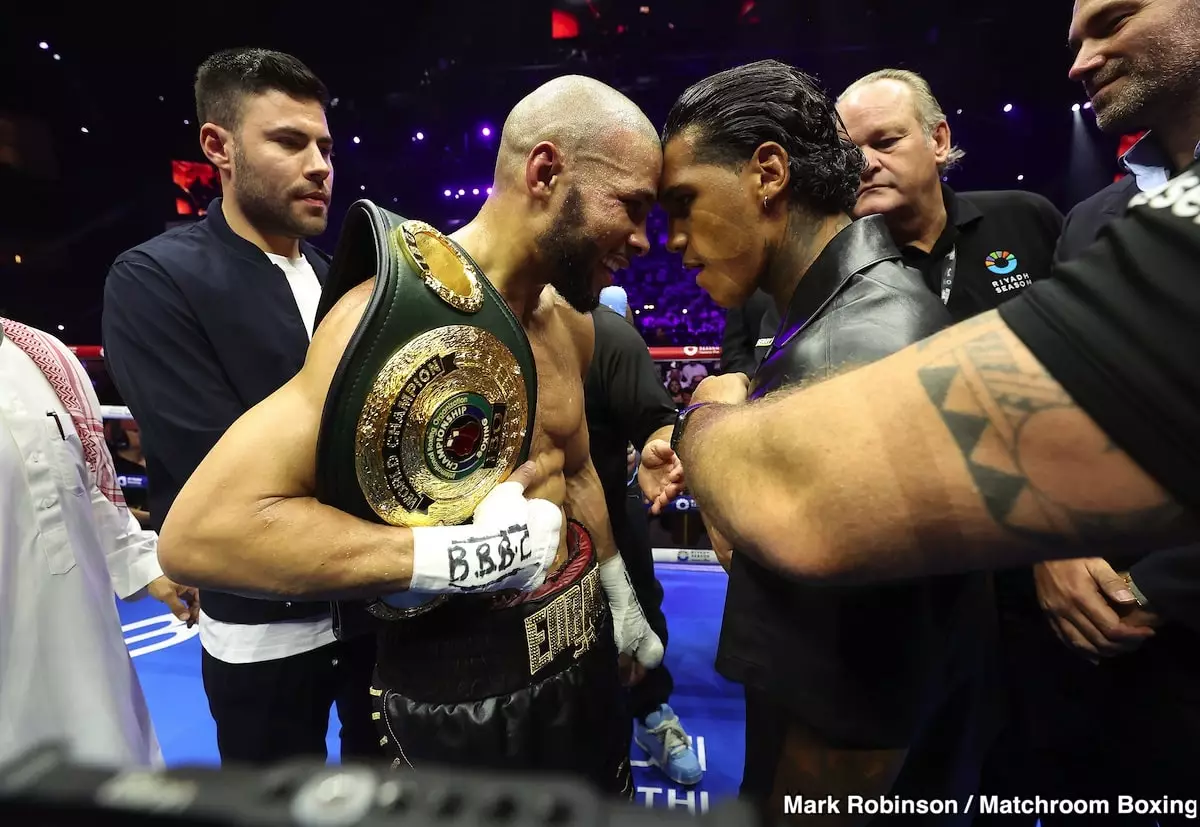The upcoming boxing match between Chris Eubank Jr. and Conor Benn, scheduled for April 26th at the Tottenham Hotspur Stadium and broadcast live on DAZN, has generated buzz primarily among UK audiences. The fight, touted as a significant event in the domestic boxing calendar, risks falling short of expectations in terms of entertainment and impact beyond British shores. The perception that it is a mere spectacle rather than a serious competitive event cannot be overlooked.
Fighting for local bragging rights instead of any title that holds global significance makes one question the motivations behind such match-ups. The legacies of both fighters are inextricably linked to their famous fathers—Eubank Sr. and Nigel Benn—leading to an assumption that the bout’s allure rests more on nostalgia and heritage than on actual sporting merit.
The Fighters: Eubank Jr. and Benn
Eubank Jr. has carved out a reputation as a fighter who consistently dances around the fringes of elite status. His profile boasts some commendable victories, including wins over James DeGale and Billy Joe Saunders, yet he often falls short in encounters that could define his career. Eubank’s background as a 168-pound fighter raises questions about how he will manage the weight differential against Benn, who has primarily operated at 147 pounds. This mismatch could be telling in a competition that many expect to reveal various strategic advantages and disadvantages as the fight progresses.
On the other hand, Conor Benn’s reputation has been marred by controversies, notably his struggles with performance-enhancing drugs which have led to failures in testing. While he has secured victories against various opponents, questions linger about the sustainability of his success, especially when he faces a competitor like Eubank, who has experienced more significant fights on the world stage.
Former champion Carl Froch has candidly shared his outlook on the bout and, despite his backing of Eubank, admits that it is not devoid of potential excitement. Froch’s focus on the fighters’ physical attributes, including Eubank’s size and historical experience, presents a compelling argument for those favoring the seasoned fighter. Simultaneously, it introduces the chink in Eubank’s armor: age and the implications of a rehydration clause. The notion that Benn’s chance could improve as the fight progresses adds an interesting dynamic to the narrative, where endurance and tactical shifts may play a significant role.
Froch’s blunt dismissal of Benn’s accomplishments acts as a rallying call to scrutinize the caliber of opponents both fighters have faced. His assertion that Benn has “done nothing” reflects a broader concern regarding the perceived dilution of credibility within the UK boxing scene. The sharp contrast between the two fighters’ careers serves to highlight the stakes of the upcoming clash and stimulates discourse around their respective boxing trajectories.
To compound the skepticism surrounding this main event, the undercard features bouts that similarly lack international intrigue. Matchups such as Anthony Yarde vs. Lyndon Arthur, and Liam Smith vs. Aaron McKenna, while appealing to local fans, raise the question of how much real competitive juice they can provide for an international audience. On the surface, these fights appear to be more about nostalgia and local pride rather than showcasing rising talent or potential future champions.
This seems indicative of a broader trend in British boxing, wherein stylistic excitement and hype replace substantive boxing narratives that resonate on a global scale. The generic nature of these matches leaves fans craving the high-caliber showdowns that characterized boxing’s glory days, leading to frustration for those who seek meaningful action in the sport.
While the Eubank Jr. versus Benn match has prompted a mix of excitement and skepticism, it ultimately raises questions about the future trajectory of British boxing. The reliance on historical legacies, combined with a lack of competitive edge, paints a bleak picture for international audiences. They will likely look elsewhere for bouts that carry weight beyond the parochial. If British boxing hopes to retain its stature on the global stage, it must shift focus from nostalgia-driven matchups and prioritize creating fights that offer something genuinely substantial.


Leave a Reply